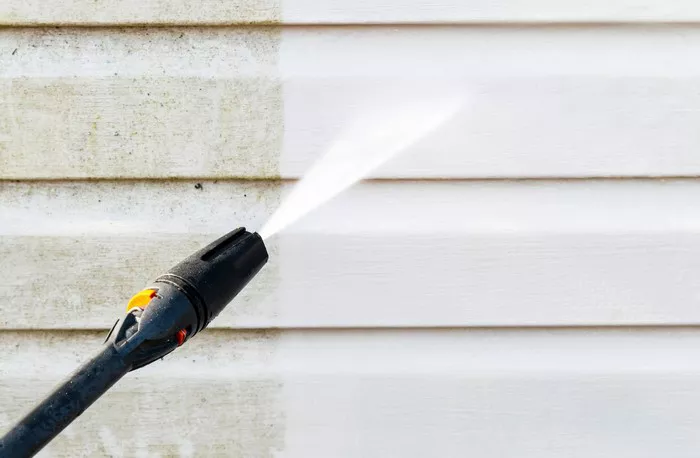Soft roof washing is a crucial aspect of home maintenance, ensuring the longevity and aesthetic appeal of your property. Unlike traditional power washing, soft washing utilizes low-pressure techniques and specialized cleaning solutions to effectively remove dirt, grime, algae, and other contaminants from your roof without causing damage. In this guide, we’ll delve into the nuances of soft roof washing, its benefits, costs, and usage methods to help you make informed decisions for your home.
What is Soft Roof Washing?
Soft roof washing is a method of cleaning roofs using low-pressure water streams and eco-friendly cleaning solutions. Unlike high-pressure power washing, which can potentially damage delicate roofing materials such as shingles, soft washing employs a gentle approach that effectively removes stains, moss, algae, and other debris without causing harm.
Usage Methods
Soft roof washing involves several key steps:
1. Inspection: A thorough inspection of the roof is conducted to identify areas of concern such as stains, algae growth, or damaged shingles.
2. Preparation: Surrounding areas are protected with tarps or plastic sheeting to prevent damage from cleaning solutions and runoff.
3. Application of Cleaning Solution: A specialized cleaning solution, typically containing environmentally friendly chemicals and surfactants, is applied evenly across the roof surface. This solution breaks down dirt, grime, and organic growth.
4. Gentle Washing: Using low-pressure water streams, the cleaning solution is gently rinsed away, along with the loosened contaminants, leaving behind a clean and refreshed roof surface.
5. Post-Inspection: After washing, the roof is inspected again to ensure that all stains and debris have been effectively removed.
Advantages of Soft Roof Washing
1. Prevents Damage: Unlike high-pressure washing methods, soft washing minimizes the risk of damage to delicate roofing materials.
2. Long-lasting Results: Soft washing not only removes surface contaminants but also inhibits the regrowth of algae and moss, providing longer-lasting cleanliness.
3. Enhances Curb Appeal: A clean roof improves the overall aesthetic appeal of your home, boosting its resale valueand curb appeal.
4. Environmentally Friendly: The use of biodegradable cleaning solutions makes soft roof washing an environmentally sustainable choice.
Disadvantages of Soft Roof Washing
1. Requires Professional Expertise: While soft roof washing can be DIY-friendly, it’s often best left to professionals who have the necessary equipment and expertise to ensure thorough cleaning without causing damage.
2. Cost: Professional soft roof washing services may incur higher costs compared to DIY methods, but the investment is worthwhile considering the benefits and potential savings in long-term maintenance.
3. Time-consuming: Soft roof washing is a meticulous process that may take several hours or days, depending on the size and condition of the roof.
Costs
The cost of soft roof washing varies depending on factors such as the size of the roof, its condition, and the location of the property. On average, homeowners can expect to pay anywhere from $200 to $800 for professional soft roof washing services. While this may seem like a significant expense, it’s essential to consider the long-term benefits and savings in terms of roof longevity and maintenance.
Conclusion
Soft roof washing is a vital aspect of home maintenance, offering numerous benefits such as preventing damage, enhancing curb appeal, and promoting environmental sustainability. By utilizing low-pressure techniques and eco-friendly cleaning solutions, soft washing effectively removes stains, algae, and other contaminants from roofs without causing harm. While it may incur initial costs, investing in professional soft roof washing services can lead to long-term savings and prolong the lifespan of your roof.
FAQs
Q1. How often should I have my roof soft washed?
A1: It’s recommended to have your roof soft washed every 2 to 3 years to maintain its cleanliness and integrity. However, the frequency may vary depending on factors such as the climate, surrounding vegetation, and the presence of algae or moss.
Q2. Is soft roof washing safe for all types of roofing materials?
A2: Soft roof washing is safe for most types of roofing materials, including asphalt shingles, metal, tile, and cedar shake. However, it’s essential to consult with a professional to assess the suitability of soft washing for your specific roof type and condition.
Q3. Can I DIY soft roof washing?
A3: While DIY soft roof washing is possible, it’s recommended to hire a professional for optimal results. Professionals have the expertise, equipment, and eco-friendly cleaning solutions necessary to ensure thorough cleaning without causing dama

